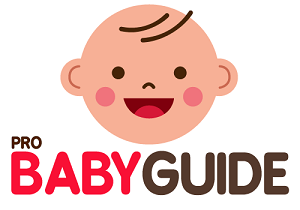We’ve all been there. You’re a new parent, utterly smitten with your tiny human. But then nighttime hits, and suddenly, you’re in a sleep-deprived fog. Your newborn seems to have their days and nights mixed up. Sound familiar? Here are some tips and tricks to help your baby sleep better: 🙋♀️🙋♂️
According to a study published in the journal Pediatrics, around 20-30% of infants have trouble sleeping through the night in their first year. And let’s be honest, those first few months can feel like an eternity when you’re running on fumes. But don’t worry, I’m here to help! I’ve got some tried-and-true tips and tricks to help your little one (and you!) get some much-needed shut-eye.
Understanding Your Newborn’s Sleep Patterns 👶
First things first, let’s talk about why newborns seem to have such wonky sleep schedules. Imagine their tiny tummies! They’re super small, so they need to eat every few hours. This means they wake up frequently, even at night. It’s normal.
Think of it like this: your newborn’s sleep is like a series of short naps. They cycle through different sleep stages, including REM sleep (where they dream!). This is crucial for their brain development.
But here’s the catch: newborns haven’t quite figured out the difference between day and night. They’re still adjusting to life outside the womb, where it was pretty dark and cozy all the time.
Creating a Sleep-Conducive Environment 😴
Now that you understand your newborn’s sleep patterns, let’s create a space that encourages those Zzz’s. Think of it like building a cozy nest for your little bird! 🐦
- Dim the lights: Bright lights can signal “daytime” to your baby. As the evening approaches, dim the lights in your home. This helps their bodies start producing melatonin, the sleep hormone.
- Sound machine: Remember how noisy it was in the womb? A white noise machine or a fan can help recreate that soothing sound and block out other distractions.
- Temperature: Keep the room comfortably cool. Overheating can increase the risk of SIDS (Sudden Infant Death Syndrome). A temperature around 68-72°F (20-22°C) is usually ideal.
- Swaddling: Swaddling can help your baby feel secure and prevent those jerky movements that can wake them up. But remember to stop swaddling once your baby shows signs of rolling over.
- Safe sleep space: Always place your baby on their back to sleep on a firm, flat surface with no loose blankets or pillows. This is crucial for safe sleep.
Establishing a Bedtime Routine 🌙

Ever notice how you feel sleepy after your nighttime routine? The same goes for babies! A consistent bedtime routine cues their bodies that it’s time to wind down.
- Warm bath: A warm bath can be super relaxing for your little one.
- Gentle massage: A baby massage can work wonders! It’s a great way to bond with your baby and soothe them before sleep.
- Quiet time: Avoid stimulating activities before bed. Instead, read a story, sing a lullaby, or just cuddle.
- Feeding: Make sure your baby has a full tummy before bed. This can help them sleep for longer stretches.
Daytime Strategies for Better Nighttime Sleep ☀️
Believe it or not, what your baby does during the day can impact their nighttime sleep.
- Sunlight exposure: Get some sunshine during the day! This helps regulate their circadian rhythm (their internal body clock).
- Interactive playtime: Engage your baby in stimulating activities during the day. Tummy time, reading books, and singing songs are all great options.
- Watch for sleepy cues: Yawning, rubbing eyes, and fussiness can all be signs that your baby is tired. Try to put them down for a nap before they get overtired.
Troubleshooting Common Sleep Problems 🤔
Even with the best efforts, you might encounter some sleep challenges. But don’t worry, there are usually solutions!
- The witching hour: Many babies get fussy in the late afternoon or early evening. This is often called the “witching hour.” Try wearing your baby in a carrier, going for a walk, or offering extra comfort.
- Early morning wakings: If your baby is waking up too early, make sure the room is still dark. You can also try a later bedtime or an earlier morning feeding.
- Sleep regressions: Babies go through developmental leaps that can disrupt their sleep. These are called sleep regressions. Stay consistent with your routine and offer extra comfort during these times.
When to Seek Help 🙋♀️
If you’re feeling overwhelmed or concerned about your baby’s sleep, don’t hesitate to reach out to your pediatrician. They can help rule out any underlying medical conditions and offer personalized advice.
Remember, every baby is different! What works for one might not work for another. Be patient, stay consistent, and trust your instincts. You’ve got this! 💪
You Might Enjoy: 14 Tips for Staying Sane During Nighttime Breastfeeding
A Word About Sleep Training 😴
Sleep training involves teaching your baby to fall asleep independently. There are many different methods, and it’s a personal choice. If you’re considering sleep training, do your research and choose a method that feels right for you and your baby. It’s usually best to wait until your baby is at least 4-6 months old.
People Also Enjoyed: Whoops! Common Bottle-Feeding Mistakes (And How to Fix Them)
Taking Care of Yourself ❤️
It’s easy to get caught up in caring for your newborn, but don’t forget about yourself! Sleep deprivation can take a toll on your physical and mental health.
- Ask for help: Don’t be afraid to ask your partner, family, or friends for support. Even a few hours of help can make a big difference.
- Nap when the baby naps: I know it’s tempting to catch up on chores, but try to prioritize sleep whenever possible.
- Stay hydrated and eat well: Nourishing your body is essential for your energy levels and overall well-being.
- Practice self-care: Even small things like taking a shower or reading a book can help you recharge.
More to Explore: Decide Where to Put Baby Monitor in 4 Easy Ways
The Bottom Line: You’re Doing Great! 👍
Navigating your newborn’s sleep can be a challenge, but remember, it’s a phase. By creating a calming environment, establishing a routine, and prioritizing your well-being, you can help your little one (and yourself!) get the rest you need.
And most importantly, remember that you’re not alone. Millions of parents have gone through this before you. Be patient, be kind to yourself, and enjoy those precious moments with your newborn. They grow up so fast! ✨




